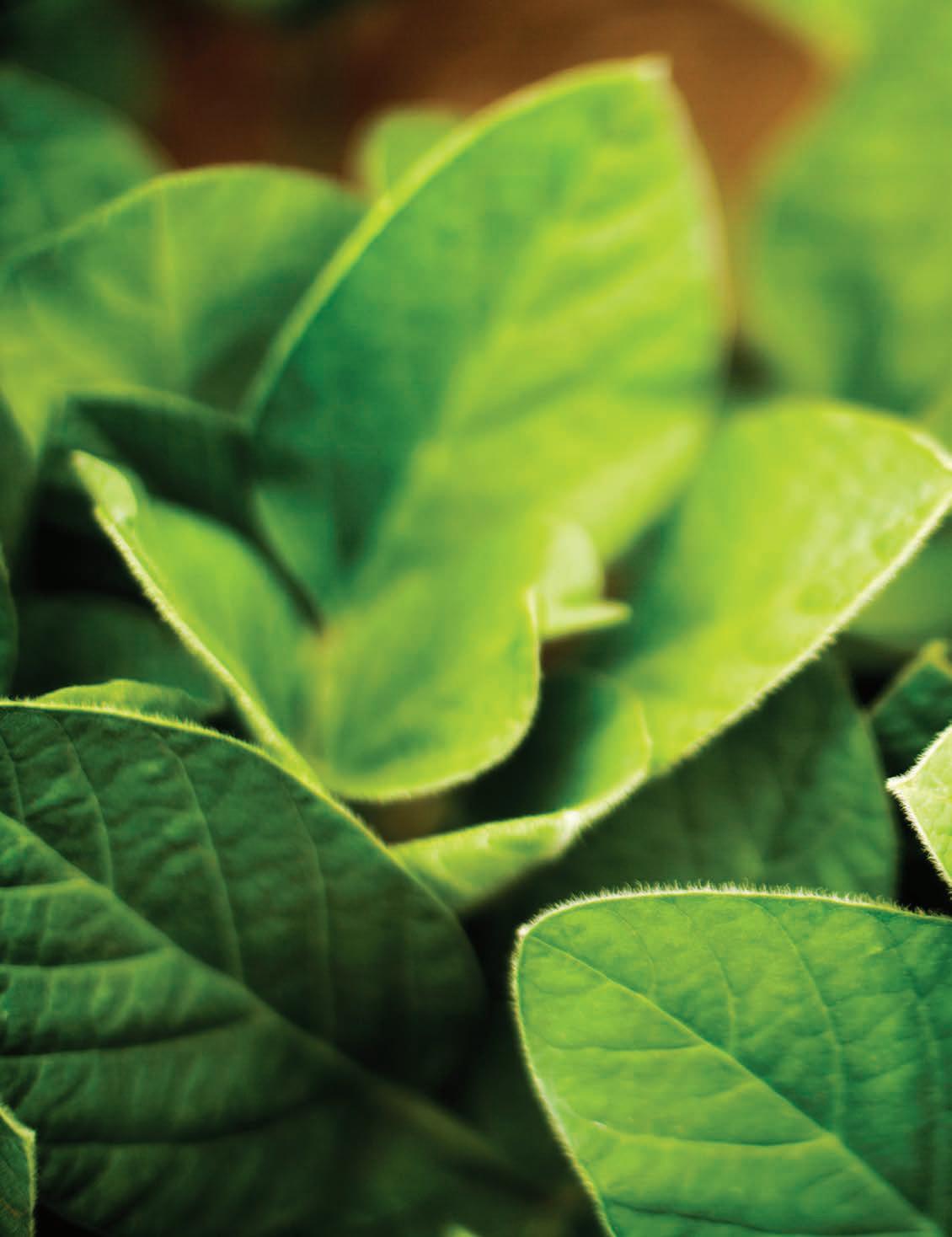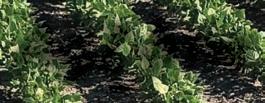




Pinto,
Torreon, and
Navy, Medalist, Armada, and Bounty to name a few.
These high-yielding seedvarieties are:
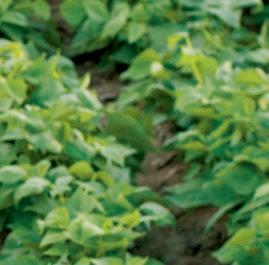


•suitable for direct harvest
•sourced using Westerngrowers that produce“Blue Tag” certified seed
•grown inarid climatesandcertified to be virtuallydisease-free
Seedwest yourDryBeanSeedSource forSuccess. Contact yourlocal dealer today!
701-730-4037|seedwest@adm.com| www.seedwest.com

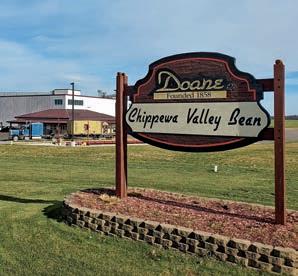
Executive Director: Mitchell Coulter 4844 Rocking Horse Circle S. Suite 2 Fargo, ND 58104 701-365-5103
Marketing and Communication Director: Jed Brazier 4844 Rocking Horse Circle S. Suite 2 Fargo, ND 58104 701-365-5101
Finance Director: Jennifer Hansen 4844 Rocking Horse Circle S. Suite 2 Fargo, ND 58104 701-365-5102
Garrett Thompson District 1 – Director 728 E. 10th St. Grafton, ND 58237 701-360-1259
Dexter Cronquist District 2 - Director 400 Eastern Avenue Gilby, ND 58235 218-791-6260
Eric Jorgenson District 3 – Vice President 6509 55th Ave. NE Leeds, ND 58346 701-739-6189
Tony Richards District 4 - Director 13273 4TH St SE Hope, ND 58046 701-430-3287
Joe Mauch District 5 - Treasurer 8753 167th Ave. SE Hankinson, ND 58041 701-640-1687
Leann Schafer District 6 - Director 5810 19TH St. NE New Rockford, ND 58356 701-947-2568
David Wieler District 1 – Council Member 12965 County 1 Walhalla, ND 58282 701-265-2883
Kevin Regan District 2- Treasurer 8424 64th St. NE Webster, ND 58382 701-739-7744
Karl Jodock District 3 – Chair 212 S Park St. Northwood, ND 58267 218-779-6498
Joshua Ihry District 4 - Council Member P.O. Box 161, 401 Bates Ave. Hope, ND 58046 701-261-6712
MINNESOTA DRY BEAN RESEARCH & PROMOTION COUNCIL
Jacob Faugstad Area 1 - Secretary 39157 310TH ST SW Climax, MN 56523 701-215-2438
Norm Krause Area 2 - Treasurer 21608 Briarwood Lane Nisswa, MN 56468 218-296-0920
Don Stueve Area 3 - Vice Chair 6748 560th St. Dumont, MN 56236 320-305-0427
Ryan Peterson Area 4 - Council Member 9200 57TH St. Clear Lake, MN 55319 320-493-5777
Research
Norm Krause, Mark Dombeck, Jacob Faugstad, Karl Jodock, Eric Jorgenson, Jeff Kosek, Joe Mauch, Ryan Peterson, Don Stueve, David Wieler, Ex Officio Eric Samuelson
Crop Insurance
Joshua Ihry, Karl Jodock, Jeff Kosek, Norm Krause, Joe Mauch, Tony Richards, Garrett Thompson, Kevin Regan, David Wieler, Jacob Faugstad, Ex Officio Eric Samuelson
U.S. Dry Bean Council
Delegate: Kevin Regan
Alternate: Joe Mauch
Marketing and Communications
Leann Schafer, Ryan
Peterson, Cordell Huebsch, Dexter Cronquist, Justin
Retterath, Rudy Dotzenrod, Josh Ihry, Tony Richards, Garrett Thompson, Eric
Jorgenson, Ex Officio Eric Samuelson
Education & Sponsorship
Mark Dombeck, Don Stueve,
Eric Samuelson District 7 - President 30966 280th St. SW Crookston, MN 56716 218-289-0310
Cordell Huebsch District 8 - Director 38132 470th Ave. New York Mills, MN 56567 218-841-2364
Jeff Kosek District 9 - Director 18766 110th St. Brownton, MN 55312 320-510-1828
Eric Sameulson President, Northarvest Bean Growers AssociationHello there. On behalf of the rest of the Northarvest Bean Growers Association Board of Directors, I want to thank you for supporting us this year. Northarvest is undergoing a bit of an evolution and we’re excited to see the future.
Rudy Dotzenrod District 5 – Vice Chair 7855 Highway 18 Wyndmere, ND 58081 701-640-2683
Justin Retterath District 6 – Council Member P.O. Box 645, 2626 8th St. Washburn, ND 58577 701-315-0082
We have new leadership, board members, and staff (after the previous director’s well-earned retirement) as well as a new strategic plan for our organization which will help us transition into some updated priorities.
Mark Dombeck Area 5 - Chair 48041 County Road 13 Perham, MN 56573 218-371-9527

We’re not there yet but we are optimistic for where Northarvest is heading. It sounds like a lot — and it is a big undertaking — but when I think about it, we really are just doing what us growers do best: Planting seeds for the future and working hard to make sure we’re doing all we can to get a good harvest out of our efforts.
Rudy Dotzenrod, Leann Schafer, Cordell Huebsch, Dexter Cronquist, Eric Jorgenson, Kevin Regan, Justin Retterath, Joe Mauch, Ex Officio Eric Samuelson
Leadership & Committee Eric Samuelson, Eric Jorgenson, Joe Mauch, Karl Jodock, Mark Dombeck
NOTE: The Northarvest Board President is Ex-officio member of all committees
We very much appreciate your support and trust over the years. We also hope to see you at Bean Day on Jan. 20 at the Holiday Inn in Fargo. If you come out, please feel free to say hello to myself or any of the board members (we do put on a sport coat and name tags every once in a while). Any one of us would like to shake your hand and thank you in person for helping us put food on tables around the world and right here at home.
For more information on what Northarvest Bean Growers Association did in 2022, including budget information, marketing, research, promotions and more, see our annual report, which begins on Page 26.

Agweek staff report
FARGO, N.D. — The Minnesota Dry Bean Research & Promotion Council and North Dakota Dry Bean Council in August elected new executive leadership.

The two entities are responsible for effectively managing their respective states’ dry bean check off.
On the Minnesota side, executive leadership elections were held during an Aug. 10 meeting in Fargo, North Dakota. The Minnesota Council is comprised of five dry bean areas covering the state of Minnesota who are elected by their peers to serve three-year terms.
Mark Dombeck of Perham, Minnesota, is the chairman for the council. He currently serves on the research, education and sponsorship,
and leadership committees. He was first elected to the Council in 1994. Elected as vice chair is Don Stueve from Dumont, Minnesota. He serves on the research, education and sponsorship committees. He was first elected to the Council in 2008. Norm Krause of Nisswa, Minnesota, was elected as treasurer. He serves on the research and crop insurance committees. He was first elected to the Council in 2010. Jacob Faugstad of Climax, Minnesota, was elected as secretary. He serves on the research and crop insurance committees. Faugstad was elected to the Council in 2021.
Executive leadership elections also were held for the North Dakota council during an Aug. 10 meeting. The North Dakota council is comprised of six dry bean districts covering the
state of North Dakota who are elected by their peers to serve three-year terms.
Elected as chair is Karl Jodock from Northwood, North Dakota. He serves on the research, crop insurance, and leadership committees. Jodock was first elected to the council in 2020. Rudy Dotzenrod of Wyndmere, North Dakota, was elected as vice chair. He serves on the marketing and communications and the education and sponsorship committees. He was first elected to the council in 2021. Kevin Regan of Webster, North Dakota, was elected as treasurer. Regan also serves as a delegate to the U.S. Dry Bean Council, where he is treasurer of the board, and serves on the crop insurance and education and sponsorship committees. He was first elected to the council in 2015.

Agweek staff report
FARGO, N.D. — Skyler Jo Uglem, of Northwood, North Dakota, and Juan Cronquist, of Gilby, North Dakota, each were awarded a $2,000 scholarship by the Northarvest Bean Growers Association.


Uglem is the daughter of Troy and Bobbie Uglem. She is attending North Dakota State University to pursue a degree in psychology/pre-medicine. Uglem was a multi-sport athlete in high school and was regularly on the “A” Honor roll. She was recognized by the National Society of High School Scholars and was active in speech as well as Future Business Leaders of America and Family, Career, and Community Leaders of America. She was also vice president of her local chapters of both the National Honor Society and Future Health Professionals. After finishing school, Uglem would like to return to her rural home area to practice pediatric medicine and start a family.
Cronquist is the son of Dexter and Mary Cronquist. He is attending North Dakota State University, where he is studying agribusiness and finance. While attending high school, Cronquist participated in basketball and golf, was an active volunteer in his community, served as an FCCLA chapter officer, a member of the National Honor Society and as a student council president. After school, Cronquist plans to return to the home farm as well as join farm associations to help promote agriculture to younger generations.
NBGA has awarded two scholarships annually for the past six years. Students must have a parent or grandparent who are members of NBGA and must be enrolled or plan to enroll in college and have at least a 3.0 grade point average.
WYNDMERE, N.D. — Ease of harvesting, strong prices and rotational advantages piqued Matt Thompson’s interest in re-introducing dry edible beans to his farm.

Fifteen years later, Thompson and his father, Dan, continue to raise a variety of edible beans, including navies, blacks and small reds near Wyndmere.
Better markets and varietal improvements that made harvesting edible beans less risky convinced Thompson to bring edible beans back to the farm in 2008 after an absence of a couple of decades.
“We use a flex head, as we do for our soybeans,” Thompson said.
Meanwhile, edible beans work well as a rotational crop.
“One thing we like is what it does to the soil ahead of the corn crop. You get a better corn crop following edibles than you do following soybeans,” Thompson said.
Edible bean production also spread out the planting and harvesting season on the farm, he said.
He and his wife, Georgia, are the parents of three sons: Theodore, 13, Mathaios, 12, and Maximus, 9.
Thompson, a Northarvest Bean Growers Association member, served on the North Dakota Dry Bean Council, representing District 5, for two three-year terms. He was on six committees: crop insurance, promotion, food aid, communication, scholarship and search.
A former member of the Dakota Valley Electrical Co-op Board, based in Edgeley, North Dakota,
 By Ann Bailey | Agweek
By Ann Bailey | Agweek

Thompson believes that being involved on boards gives him more insight into the organization or — in the case of edible beans — the commodity.
“Anything you can do to gain insight on the commodities you’re growing and the business side is always positive,” he said. “It’s helpful to feel like you have a guiding hand in how the product is marketed, and you have more control over what you’re doing.”
Thompson hopes to serve again in the future when he has more time to commit to it.
Besides farming, Thompson, who studied manufacturing and engineering technology at Montana State University in Bozeman, Montana, also in 2003 founded a company called TASK Manufacturing Inc., which he runs from the family farm. The company makes replacement parts for no-till and strip-till equipment.
MENOMONIE, Wis. — Innovation at Chippewa Valley Bean is what has made it the world’s largest processor and exporter of kidney beans, and innovation is what will carry it strongly into the future.

Charles Wachsmuth is Chippewa Valley Bean’s sales and marketing vice president. Chippewa Valley Bean was founded in 1972 by Wachsmuth’s grandfather, Russell Doane, and a cousin of his, Bob Wachsmuth.
“On a daily basis, we have three generations come into the office,” said Wachsmuth.
The company was originally a grower processor, meaning that it predominantly was processing its own beans. Over time, it began to bring on other growers along the upper Midwest, and throughout the 1980s worked mainly with domestic markets.
Wachsmuth said it was Cindy Brown (Russell Doane’s daughter), now president of Chippewa Valley Bean, who started taking over sales and first broke into markets in the United Kingdom and into Europe in general. Today, Chippewa Valley Bean is the largest processor and exporter of kidney beans in the world.
“We export to about 30 countries on a yearly basis on five different continents,” said Wachsmuth.
Chippewa Valley Bean buys kidney beans from 100 to 120 family farms across from Wisconsin, Minnesota, North Dakota and South Dakota.
“From there, we bring the beans in and we clean them, we process them, and then we ship them out to canners and packagers around the world,” said Wachsmuth. “We don’t do anything except condition and clean the raw product.”
Equipment such as fanning mills, gravity tables and destoners can be found in the processing facility of Chippewa Valley Bean which is near the Chippewa River.
Chippewa Valley Bean also utilizes electronic color sorters, as well as a machine called a crab neck or pin sorter, which is a large cylinder with “tens of thousands of needles” that work well for sprouts and skin checks, said Wachsmuth.
Kidney beans tend to come in three types, said Wachsmuth — dark red, light red and white.
Kidney beans are a specialty crop and it takes specialty equipment to combine them and requires a different type management in the field, said Wachsmuth. Kidney beans are also a cosmetic product, he said, and the value in a kidney bean comes from whole intact skin, and the value is lowered if the skin wrinkles or varies in color.
“If you’re a consumer and you open up that can of kidney beans and pour it out, you want to see that beautiful field of mahogany, and you want to see all the same size and all the same shape,” said Wachsmuth.
Kevin Dettler, a grower in South Dakota who’s delivered kidney beans to Chippewa Valley Bean for over 30 years, said their farm grows beans in a “hostile” environment which can lead to low moisture beans that are susceptible to skin checks.
“No other processor has the equipment to preserve the quality of my beans,” said Dettler of Chippewa Valley Bean. “It’s no secret that many things can happen to our bean crop, such as hail producing odd-shaped beans, fog right at harvest producing sprouts, or too much rain at harvest producing muddy beans. Chippewa has handled all of these problems for me. Never once have my beans been turned away because of flaws in quality.”
This past year has challenged the staff at Chippewa Valley Bean to think about innovation.
“Logistics has been difficult,” said Wachsmuth. “If it’s not container shortages it’s (Canadian Pacific) rail out of Minneapolis throttling the amount of trains going to Montreal.”
That was the traditional shipping route for many years for Chippewa Valley Bean, until
CONTINUED ON PAGE 10

CONTINUED FROM PAGE 8
the company made history by shipping kidney beans from its plant in Menominee to Europe via the Port of Duluth-Superior last May, said Wachsmuth.

Wachsmuth said the company is also seeing indirect pressure from the war in Ukraine and its impact on fuel prices.
“Our largest customer in Italy, in September of 2021, paid 6 million euros for their natural gas,” he said. “In September of 2022, they paid 24 million euros for the same amount of fuel — so what we’re seeing is increased pressure from our customers to lower costs.”
The pressure goes back to 2018 to the steel and aluminum tariffs and the EU’s response to them, he said.
“The worldwide steel and aluminum prices are still high,” he said. “So our customers are still paying more for those raw materials that way.”
Another challenge this year was the price of corn and soybeans and other commodity crops, said Wachsmuth.
“That depressed our acres, because as we saw this pressure from our customers that we needed to keep prices stable or low, we saw our competitor crops being of super high value,” he said. “So it was much harder this year to get a crop of kidney beans in the ground — and no hard feelings on that, because a farmer and a grower needs to go where they’re getting the most value out of their land.”
Doane Limited is a sister company to Chippewa Valley Bean, and a test ground for new equipment for new seed varieties and new techniques in the field, said Wachsmuth.
A skin check is performed on kidney beans at Chippewa Valley Beans in Menomonie, Wisconsin, on Dec. 15, 2022.
Noah Fish / Agweek
Chippewa Valley Bean is also innovative in the way it approaches sustainability.

“This year, we are the first edible bean processor in the United States to have passed a third party ethical supply chain audit,” said Wachsmuth. “We’ve redesigned our truck traffic to save 11,000 diesel miles per year, just on trucks moving around the facility, and as you look at our distribution center, it was designed in mind to save energy.”
“We’re always looking at different ways to bring better value back to our growers,” he said. “There are no beans that come onto our property that are wasted. We’ve created seven in-house grades, and we can market all of those grades domestically or around the world.”
“I fully believe, maybe not in 2023, but by 2024 we’ll have a full three scope carbon audit done, and we’ll have set a neutrality date,” he said. “And this stuff is important, in fact, one of our most important domestic customers has said, ‘If you can come through with a carbon neutral bean, we will package that separately and it will have its own label.’ Is anybody requiring the steps of us now? Not yet, but it’s only a matter of time.”
No other processor has the equipment to preserve the quality of my beans.
Kevin Dettler, South Dakota farmer




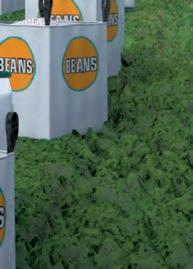

GILBY, N.D. — David Dickson enjoys the business of farming.
Dickson, a University of North Dakota business college graduate with a degree in finance, raises grain and row crops, including edible beans, on his farm northwest of Gilby. Pinto beans are an integral part of his farming operation both because of the diversity they


add to his crop rotation, and, at the same time, how well they fit in it.

Dickson helped his dad, Mark, farm when he was growing up, and after graduating from
CONTINUED ON PAGE 14
David Dickson grows edible beans on his farm northwest of Gilby, North Dakota. Contributed / Erin Dickson
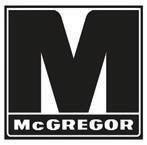
Midway High School in 2001 and graduating from UND with a bachelor’s degree in 2006 worked as a grain buyer at the North Dakota Mill and Elevator in Grand Forks for eight years.
Ten years ago, Dickson began farming full-time with his father, and spent the first four years of that commuting from Grand Forks to the farm where he grew up. In 2018, Dickson, his wife, Erin, and their children moved to the farm.
The Dicksons raise wheat, corn, sugarbeets, soybeans and edible beans. David plants all of the row crops and Mark seeds wheat. Both of the farmers run combines during harvest.
The 2022 pinto bean crop, despite getting in the ground later than average because of cold, wet conditions this spring and then dry conditions after planting, yielded surprisingly well.

“The best we’ve ever had,” Dickson said.
A former Northarvest Bean Growers Association board president, he also takes pride in bettering the edible bean industry through service to the organization. He ran for a board position

at the urging of Gary Paur, a former NBGA board member.

Dickson represented District 2 on the NBGA board from 2013-22 where he served on six committees, including legislative, policy and marketing and promotion.
“I really liked the promotion committee,” Dickson said. The goal of the committee is to find new ways to market edible beans, and during his time on it he and other members worked with Food Network star and cookbook author Molly Yeh, who lives near East Grand Forks, Minnesota, and the Culinary Institute of America in Hyde Park, New York, to promote using edible beans to make healthy meals.
His service on the legislative committee, meanwhile, gave him additional insight into how government policy is made and how that input from agricultural organizations can help shape it.
Dickson also appreciated the opportunity to learn about the production challenges that edible bean farmers in other areas, such as southern Minnesota, face and to hear the
concerns and suggestions throughout the Northarvest region.
Agronomic challenges, such as white mold, fertilizer efficiency and whether rolling the ground is beneficial are common concerns that farmers contacted him about or told him in person, he said.
With the 2022 crop year behind him, Dickson is looking forward to 2023, making fertilizer and seed purchases and hiring employees. Finding employees remains challenging, and that, along with transportation uncertainties and delays, are two of the issues he and other farmers are facing.
Being responsible for solving the problems that come up is one of the things he likes about farming.
“I am my own boss. I like how every day it presents a different challenge,” he said.
WALHALLA, N.D. — Raising edible beans is a family tradition for Roger Carignan.
“I’ve been growing them since I started farming back in the ‘90s, and my father grew them before that,” said the Northarvest Bean Growers Association member and former North Dakota Dry Bean Council board member.


Edward Carignan, Roger’s grandfather, founded Carignan Farms (pronounced CARRY-EN) south of Walhalla in 1950, and Roger’s dad, Ron Carignan, began growing edible beans on it in the 1980s.
Roger and his brother, Randy, rotate edible beans with wheat, canola, sunflowers, soybeans and corn on their acreage.
“It works good in the rotation. It splits up time at harvest so you don’t have to harvest all the crops at the same time,” Roger said. Meanwhile, edible beans leave the ground in favorable condition for the following spring.
“It leaves a good, mellow soil,” he said.
CONTINUED ON PAGE 16
CONTINUED FROM PAGE 15
In spring 2022, the Carignans planted 800 acres of pinto beans, fewer than they usually do because the cold, wet weather delayed planting. The brothers didn’t plant any black beans because they typically don’t produce well under the dry conditions that were prevalent in the fall of 2021 and expected to continue into the next growing season.
The weather turned wet in April and May 2022, but Carignan Farms continued with their plan to plant pinto beans because they hadn’t purchased any black bean seed.

Pinto beans, like the Carignans’ wheat and row crops, were planted later than is typical — June 10 — and Roger didn’t have great expectations for them. Despite the delayed planting, dry conditions in July and a late harvest season pinto bean yields in 2022 were above average.
For Roger, who represented District 1 on the North Dakota Dry Bean Council, producing high yielding, good quality edible bean crops is only part of his commitment to the industry. He also believes it’s important to have a voice on issues such as marketing, policy and crop insurance that affect edible bean farmers.
Roger decided to run for the Dry Edible Bean Council position at the urging of someone who had served on it and told him about its work.
“I thought I’d give it a shot, and try it for three years,” Roger said. “I ended up terming out after nine years.”
He served from 2013-2022, and during that time held the offices of chair, vice chair and treasurer. He also was an alternate delegate to the U.S. Dry Bean Council.
Throughout his years on the Council, he served on a variety of committees, including crop insurance. During his time on that committee, members worked and succeeded in getting dry edible beans eligible for disaster assistance.
Roger appreciated having the opportunity to have had a visible, positive effect on the industry and encouraged other edible bean farmers to consider serving on the North Dakota Dry Bean Council.
“There are a lot of things you don’t know as a farmer, and you get into issues and are really helping the dry bean industry,” he said. NBGA
Alliance Valley Bean, LLC
3792 Elevator Road, PO Box 566
Larimore, ND 58251
Manager: John Hemmingsen
jhemmingsen@alliancevalleybean.com
701-343-6363
Alliance Black Bean Receiving Stations:
Alliance Valley Bean, LLC

Sharon, ND
701-524-2568 ...
Central Valley Bean Co-op
Buxton, ND
Gen. Manager: Dan Fuglesten
701-847-2622
Central Valley Bean Co-op
Garske, ND
Manager: John Smith
701-795-4383 ...
Central Valley Bean Co-op
Grafton, ND
Site Contact: Andrew Dusek
701-352-0407
Cen-Dak Cooperative
Leeds, ND
Manager: Tony Gratton
701-466-2281 ...
Edinburg Farmers Elevator
Edinburg, ND
Manager: Mike Syrup
701-933-8421
Star of the West
St. Hilaire, MN 56754
Manager: Jason Pitzer
218-964-3000
PERHAM, Minn. — Northarvest Bean Growers got a chance to tell the world about its edible bean production.

Otter Berry Farm, operated by Cordell and Kris Huebsch near Perham, Minnesota, hosted a group of 30 representatives of foreign governments on Sept. 22, 2022.
The attaches spent a week touring farms, research sites and agribusinesses across the state. Visits ranged from Hormel and soybean farms in the southeast to sugarbeet farms and processing in the Red River Valley.

At Otter Berry, participants on the tour learned about kidney beans and the Northarvest edible
bean commodity group, and the agritourism perspective of the farm, which includes berry picking, selling pumpkins and gourds and a corn maze.
“I just love having people come out to see how we do things here,” said Cordell Huebsch, a Northarvest director. “Not everybody knows about dark red kidney beans. It’s kind of an obscure crop.”
Eric Samuelson, president of Northarvest, was among the other officials from the group.
“Different cultures require different types of dry beans,” Samuelson said.
CONTINUED ON PAGE 16

CONTINUED FROM PAGE 17
“They’ll take away that they’ll be able to buy with confidence beans from this area.”
Questions from the group ranged from irrigation to liability insurance for visitors to the farm.
The Foreign Agriculture Service organized the tour along with the Minnesota Department of Agriculture.
“The goal is to really get them to know what’s going on in the state, what’s important agriculture-wise to the state and that’s where we can make possible future trade connections with them,” said Jeff Phillips of the Minnesota Department of Ag, who was on the weeklong tour.
He said policy issues are sometimes discussed, and they also emphasized sustainability efforts in Minnesota.
Ben Rau is with the Foreign Ag Service, a part of the U.S. Department of Agriculture, and


helped organize the tour to give participants “a sense of what agriculture looks like on the ground.” Because of COVID-19, it is the first such tour since 2019. In addition to farms and agribusinesses, the tour also provided information on how state government and the University of Minnesota work to support ag.
“One of the things that has really struck me and I think has struck a lot of the participants … is just sort of the innovation that is going on both on the farm level, in terms of reducing impact on the environment, working on cover crops, coming up with new techniques to create both economic and environmental sustainability, then also the innovation that is happening in the Twin Cities and around the state in the agribusiness sector as well,” Rau said.
Rau said every country has different rules and regulations for importing ag products, and the tour gave participants opportunities to ask questions about U.S. practices.

One of the attaches on the tour was Matthew Warrell, who started working in Washington, D.C., this year as a representative of the Australian government.
It was his first visit to Minnesota, and he said he found it interesting that there was good competition among agribusinesses but also collaboration.
CONTINUED ON PAGE 20

Wednes day, February 22nd ~9 amto 5pm Thurs day, Februar y23rd~9 amto 4pm
AlerusCenter,Grand Forks, ND www.cropexpo.com
SharkFarmer -RobSharkey
1:00 p.m. Wednesday, Februar y22
“Navigating Uncertainty”
RobSharkey,known asThe SharkFarmer,isnot youraverage Illinoisgrainfarmer.He’sadisruptor whoisunwavering inhis abilitytodirectlyaddress difficulttopics.Hisprovocativestyle parallelsa story-based structure, whichresonates with thousandsof weekly,globallisteners of his podcasts and TV shows.
Robhas hadalifetimeofup’s anddowns–asafarmerheexperienced thehogcrashofthe90sandmostrecently,theunimaginablelossofhis 17-year oldsoninan automobileaccident. Yet, he hasfound waysto remain positivethroughallthecur veballs life hasthrownathim.Rob useslighthumor to connect withhis audience,upliftingandmotivating farmersand agbusinessesinatimeofuncertainty. Hismessage canbe described as “powerful”and“justwhat Ineeded tohear rightnow.”
Sponsored by:
BrianCarroll,

1:00 p.m. Thursday, Februar y23
“GrandFarm’s AgTechEcosystem -What theheckisitandwhydoesitwork?”
Grand Farm enablestechnologytofeedthe worldbyfacilitating innovationsto solvesomeofthe world’s largest challengesinagriculture. Grand Farm’s approach combinesan ecosystemofrelevant stakeholdersincludinggrowers,startups,establishedcompanies,and educationand researchinstitutions.Inthisdiscussion,Grand Farm DirectorBrian Carrollengageswith panelistsfrom theGrand Farm ecosystemtoexploretheirexperiences.
Sponsored by:
Wednesday
Soyb eans /Dry Beans
•Understanding Delta-Tand itsImpacton
Pesticide Efficacy
•Makeand Take HomeaTractorFirst AidKit
•Where’sTheMarketHeadingin 2023? (JointS essionwith Small Grains)
Thursday
• International MarketOutlook by NorthDakota
TradeOffice
•Dry BeanProduction ResearchandRecommendation Updates

•BeanDisease Update
•Current Trendsin Machiner yand LandSales (JointSessionwith SmallGrains)
Potatoes
Wednes day
•PotatoAgronomyManagementStudies 2021
•LateBlightSpore Trapping NetworkforMN &ND
•PotatoBreedingand Cultivar Development

•PotatoInsectManagement2022
•Nitrogen UseEfficienc yand Data Organization
Thursday
•UnitedPotatoGrowers PotatoOutlook

•MinnesotaCertifiedSeed Report

•North Dakota CertifiedSeed Report
•NitrogenPrinciplesfor Potato Production
•Dormanc ybreakin seed tubers
Wednesday
•Considerationsforthe2023 Fertilizer Season
•WaltzingThrough 2022CropProduction
•Waterhemp ResearchandManagement
•Where’sTheMarketHeading In 2023? (JointS ession with Beans)
Thursday
•What’sgoingoninthe Markets?
•HybridWheat Update
•ManagementofCerealDiseases
•Current Trendsin Machiner yandLand Sales (JointS ession with Beans)
CONTINUED FROM PAGE 18
“I’ve been really amazed at the really strong sort of ag ecosystem that you’ve got here,” Warrel said.
Participants on the tour also got a chance to wander through the Otter Berry corn maze that is open on weekends in September and October.
Cordell and Kris Huebsch diversified into becoming a tourist destination about six years ago.
“We knew there was a need for strawberries in this area, and it’s evolved into more of an agritourism thing,” Cordell Huebsch said.
Part of the reason to add strawberries and pumpkins was to involve their two daughters, who are now ages 12 and 10. They help provide some of the hand labor needed for strawberries and pumpkins and also work directly with visitors.
“It’s great to have the kids meet the public,” Cordell Huebsch said.
The more conventional part of the farm is kidney beans rotated with corn, which requires irrigation on the sandy soils in the lakes area of Otter Tail County.


Huebsch said kidney beans made an average crop in 2022, despite the late planting after a cool, wet spring.

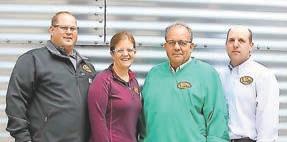
“We got the heat units we needed to make some beans; nothing to complain about on that front,” Huebsch said. NBGA
Other Northarvest representatives at the Otter Berry Farm tour near Perham, Minnesota, on Sept. 22, 2022, were, from left, Mark Dombeck, chairman of the Minnesota Dry Bean Research and Promotion Council, Northarvest President Eric Samuelson and Mark Krause, treasurer of the Minnesota Dry Bean Research and Promotion Council. They helped answer questions from foreign attaches on a weeklong tour of Minnesota agriculture.
Jeff Beach / Agweek


PERHAM, Minn. — Dry edible beans are a high-value, nutritious food for consumers. But to have future producers, there must be successful business transfers between generations.

Mark Dombeck, 76, is chairman of the Minnesota Dry Bean Research and Promotion Council and a dairy farmer. Dombeck went through his own farm transition in the 1970s and is now working to hand off a substantial
enterprise to three grown children and families who joined the farm about 20 years ago.
“I went through consultants and tried to get guidance,” Dombeck said regarding the transition. “As economic times change. the younger generation has greater — or less — interest. The hardest thing for younger generations to understand is equity.
CONTINUED ON PAGE 22
If it was just for myself, I probably would just farm as long as I could. But this is longterm investment for the next generation.
Mark Dombeck
CONTINUED FROM PAGE 21
They’re not making a big cash wage, but they’re building equity. You’re cash-poor and asset rich.”

Dombeck graduated high school in 1964. His parents, John and Lottie, raised two sons and three daughters on a diversified, 280-acre farm. In his childhood days, Dombecks milked cows in a 34-head stanchion barn and ran a 30-head farrow-to-finish pig enterprise, which was dropped in the 1960s.
His older brother Mike, was drafted and served in Vietnam. Mike came home and started his own farm at Bluffton, Minnesota, 25 miles away.
Meanwhile, Mark took three years of diesel mechanic training at what is now Central Lakes College at Staples, Minnesota, and started a construction equipment mechanic job in the Twin Cities. He was drafted in 1967 and served two years in Korea. In 1970, he returned the construction job. In 1972, a fire destroyed his
CONTINUED ON PAGE 24







CONTINUED FROM PAGE 23
parents’ dairy barn. They rebuilt, and Mark came home to farm in 1974.
“We rented facilities and land from Dad for two years, and set up a contract-for-deed as part of the transition,” Mark said. As the farm took off, the family grew: Robert (Bob) (1975), Sarah (1977), Cheryl, (1979), and Steven (1981).
In the 1980s, commodity prices were low and interest rates were high. Mark was looking for profit and in 1986 started growing dark red kidney beans. He’s planted dark-red or light-red beans every year since. In the late 1980s, the farm started to expand acres.

In the early 1990s, the farm added more land and invested in irrigation to most of their land. Today there are 23 irrigation pivots on a farm that is 1,800 acres, plus additional land. Significantly, about 800 acres are dry beans — half dark-red and light-red kidney beans because of maturity differences.


In 1996, Mark built a dairy barn that today milks 350 cows. It has free stalls and a “double-ten” parlor that allows milking 20 cows at a time.
They sell milk to Bongard’s Premium Cheese in Perham, which is a cooperative.
In 2001, Mark ran for an open post on the dry bean council and has been on the board ever since. For the past 10 years he’s been chairman and has served on the Promotion, Communication and Research Committee.
“I wanted to learn more about research and genetics and product development — promoting dry beans for a good and healthy diet,” he said.
The children started the conversation and came home, gradually. The farm has grown but “there’s plenty of work there for everybody,” Mark said.
Mark remains as the president and Bob is general manager.
• In 1997, son Bob joined full-time, after s tudying diesel mechanics in the John D eere program at North Dakota State C ollege of Science in Wahpeton. Bob and his w ife, Tiffany, have three young daughters.
Mark Dombeck went through his own farm transition in the 1970s and is now working to hand off a substantial enterprise to three grown children and families who joined the farm about 20 years ago.
Cavalier, ND – Cory Seim Phone 701-265-8328 Mobile 701-331-0539
cseim@kelleybean.com

Cavalier, ND – Curt Kirking Mobile: 701-520-0116
ckirking@kelleybean.com
www.kelleybean.com
Mayville, ND – Keaton Flanagan Phone: 701-786-2997
Mobile: 701-331-2615
kflanagan@kelleybean.com
Hatton, ND – Dean Nelson Phone: 701-543-3000
Mobile: 701-238-5228
dnelson@kelleybean.com
Oakes, ND – Deon Maasjo Phone: 701-742-3219

Mobile: 701-678-4384
dmaasjo@kelleybean.com
Regional Manager – John Bartsch Mobile: 612-759-5868
jbartsch@kelleybean.com
Perham, MN – Dave Hartmann Office: 218-346-2360
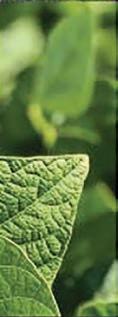
Mobile: 218-841-1701
dhartmann@kelleybean.com
Perham, MN – Dale Shultz Mobile: 218-371-1443
• In 2003, daughter Cheryl and her husband, Jeremy Lachowitzer, joined. Lachowitzer is an e xpert carpenter and manages facilities as well as feeding and nutrition for the dairy. Cheryl in the past two years has taken on the care of baby calves (which onc e was Mark’s responsibility). They have a son and daughter.
• In 2005, son Steven came on-board, also after diesel and mechanical education at NDSC S, and manages cropping and e quipment maintenance for the farm. He and his w ife, Elisabeth, who helps on the f arm part time, have two sons and a daughter.

“I had a ‘policy’ for all of the kids,” Mark said. “They had to be ‘gone’ for five years. Everybody has been out to see what the rest of the world is like.”
To get financially ready for these partners, Mark had attended business transition seminars, both through AgCountry Farm Credit and the University of Minnesota. Based on expert advice, in 2000 he set up Sand Hill Dairy Inc, a corporation for the dairy cattle and equipment. Similarly, in 2010 he created Toad River Farms LLC for the land.
Mark Dombeck has worked to transition his farm to the next generation. Jed Brazier / Northarvest Bean Growers Association

He’s gradually shifted shares of each toward the children and continues to own about 10% of each.
Also looking ahead, the Dombecks are incorporating robots to counter an evolving labor shortage. By the end of December, they
planned to have put in place one feed robot and five DeLaval robots for milking — a total of about $1 million investment.
“If it was just for myself, I probably would just farm as long as I could,” Mark said. “But this is longterm investment for the next generation.” NBGA

Mission Statement:
Northarvest Bean Growers Association represents the largest group of dry bean farmers in America, working together to fund research, promote, and produce the finest beans in the world.
NBGA is a grower-led board of directors working together to oversee the dry bean checkoff program funding to better the dry bean industry through promotion, field and nutrition research, market development, monitoring governmental policy, advocating for greater consumer choices, and focusing on the needs of our producers. NBGA advocates for the approximately 2,400 dry-edible bean farmers from North Dakota and Minnesota — the Northarvest region — which is North America’s largest supplier of quality edible dry beans.



The Northarvest Bean Growers Association is a major contributing member of the U.S. Dry Bean Council (USDBC), whose work is to increase the consumption of U.S. dry beans worldwide. Working with USDBC, our dry bean growers made contact with countries around the world to maintain existing markets and explore opportunities to develop new markets, monitor trade policy and market trends, and discuss dry bean demand with importers, wholesalers, packagers and retailers. Kevin Regan, Webster, North Dakota, and Joe Mauch, Hankinson, North Dakota, represent Northarvest on the USDBC Board of Directors.
Northarvest supported the U.S. Dry Bean Council in their efforts to build trade markets for dry beans and dry bean products. Northarvest District 8 Director Cordell Huebsch traveled to Cologne, Germany, April 26-29 for the
Anuga Food Show. Kevin Regan participated in BEANCON22 in Puerto Vallarta, Mexico and traveled to Washington, D.C. to lobby for food aid efforts with the World Food Program, U.S. Foreign Ag Service, U.S. AID, and countless private volunteer organizations.
Northarvest market development efforts: President Eric Samuelson traveled with Minnesota Gov. Tim Walz and a large delegation to the United Kingdom and Finland. Samuelson met with Penny Mordaunt, Minister of State at the Department of International Trade, about dry bean tariffs. He also met with Gregor Cotto, Agriculture Policy Advisor, Alan Gogbashian, British Consul General, Greg Hands, Minister of State for Trade Policy, Antony Phillipson, Her Majesty’s Trade Commissioner for North America, and Jennifer Groover, Senior Policy Advisor for Trade and Agriculture. Eric was invited to Walz’s residence following the trip for a return visit from H.E. Mikko Tapani Hautala,
Ambassador of Finland, to further discuss agriculture trade.
Jennifer Hansen traveled to Costa Rica and Dominican Republic. Central America is a premier market for dry beans. Hansen traveled with The Great Lakes and St. Lawrence Governors and Premiers to discuss dry bean trade. There was a visit to the Puerto Caldera — the largest port on the Pacific in Costa Rica — business meetings with Walmart, Ministry of Agriculture and Livestock, and Grupo Empagro in Costa Rica. In the Dominican Republic she met with dry bean farmers to gain intelligence on the types of beans they are growing, genetics and farming practices. Hansen met with importer La Saniuanera, Puerto de Haina (Port in Dominican Republic), and Importadora del Sur S.R.I., a large import/export company in the dry bean industry
CONTINUED ON PAGE 28
CONTINUED FROM PAGE 27

For more than 40 years, Northarvest has provided extensive funding to support research aimed at improving bean production. The Northarvest Research Committee identified a number of research priorities this year and submitted those to scientists as guidelines to receive funding requests. In 2022, the Northarvest board approved the following research projects for a total budget of $381,429:
• Dry bean response to drainage and f ungicide treatment in northwestern Minnesota.
• North Dakota dry edible bean variety development.

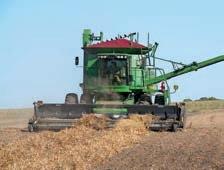

• Herbicide programs to control acetolactate synthase (ALS)-resistant Palmer amaranth and waterhemp in dry beans.
• Evaluating nitrogen fertilizer guidelines for dr y bean production in Minnesota.
• Improving white mold management in dr y beans.
• Pinto bean crop tolerance to preplant, low-dose application of dicamba.

• Dry bean improvement for the nor thern Plains.



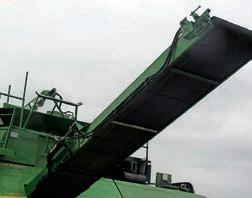
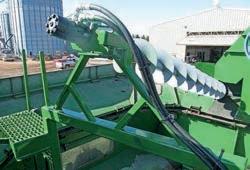

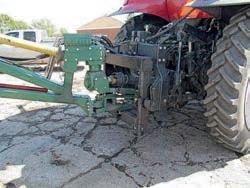
• Evaluation of selected plant establishment f actors and nutrition inputs in pinto beans.
• Resistance of North Dakota State University dry bean breeding lines and varieties to soybean cyst nematode.


• Dry bean grower survey of pest problems, p esticide use and varieties in 2022.
• Dry bean survey and disease management in Nor tharvest area.
• Collaborative irrigated kidney bean variety trial and breeding nurseries at Staples, Minnesota.
Northarvest Bean Growers Association contributed to bean variety trials at North Dakota State University, performed by Juan Osorno. Northarvest Bean Growers Association


A recent addition to the Northarvest communication plan this year is our new publishing partner, Agweek, who is handling the new iteration of Northarvest BeanGrower magazine. A new editorial team is hard at work behind the scenes to modernize the magazine. The publishing schedule will remain approximately the same. Agweek will produce the following:
• Five physical issues of the Northarvest B eanGrower magazine annually.
• Extended article coverage via the Agweek online platforms.
• Digital version of the magazine and past is sues available on the Northarvest Bean Growers Association website.

Northarvest has a longstanding relationship with the Red River Farm Network to keep growers updated on the latest agricultural issues, bean industry updates, and related information for farmers. This unique partnership is an effort to keep growers informed with timely news impacting the dry bean industry. This partnership includes the following:
• The “Dry Bean Scene,” a weekly radio se gment which is available on 20 radio s tations, as well as highlighted on our web site and social media channels.
• A weekly Northarvest e-newsletter that is circulated to 1,400+ subscribers and available on our website every Friday at https://northarvestbean.org/learn-more northarvest-weekly-e-news.
Northarvest works with Communique, an agriculture, health and nutrition communications firm, to promote beans for health, culinary and school professionals, as well as home cooks, through the Bean Institute online community, and to support dry-bean related health research. The goal of the promotional work is to connect with food industry influencers to increase bean use and consumption across America and to support the continued human health related to dry edible
beans. This partnership provides the following services for Northarvest:
• Bean Institute Social Media: C ommunique manages the Bean Institute social media platforms on b ehalf of Northarvest, including Facebook, Instagram, Twitter and Pinterest. This online community targets health professionals, home cooks, culinary and f ood service professionals, nutrition e ducators and school nutrition professionals with timely, impactful bean me ssaging. They also utilize advertising and promotions to increase brand visibility
and f ollowers and will soon be teaming w ith influencers to further increase awareness.
• Bean Institute Website: Northarvest also supports the continued development, maintenance and the addition of new c ontent to the Bean Institute website, the online platform that supports c omplementary messaging and content to the Bean Institute social media ac counts. Communique’s services include moni toring the web and keeping it fresh, responding to visitor questions, adding e ducational content, videos and other materials, and monitoring web traffic and usage .
• Dry Bean Health Research Program (DBHRP): Northarvest awards three inc entive grants of $20,000 each to highly quali fied researchers for the development o f research proposals on dry beans and human health to be submitted to the National Institute of Health and/or the U.S. Department of Agriculture
C ommunique administers the DBHRP on b ehalf of Northarvest.
Sinc e the program’s inception, the s tudies Northarvest has supported
CONTINUED FROM PAGE 29
have received funding of approximately $12.2 million from o ther sources.

• Re gistered Dietician: Communique retained the services of a registered dietician for the 2021-22 fiscal year to attend the Culinary Institute of America, the Food and Nutrition Conference and E xpo, and National School Nutrition Association C onferences. The individual will develop content for handouts and provide dry edible bean nutrition information to food e xperts and influencers.
• C oloring book app/website: Teaming together once again, Nor tharvest and Communique created a fun, educational c oloring app for informing children about dry bean farming and the nu tritional benefits of beans. Kids are able to color pages with a variety of tools, like crayons and paint bucket, on a vir tual platform. As they color, an educational audio lesson plays featuring longtime Red River Valley TV and radio p ersonality Mick Kjar. The app will continue to be available in b oth the Apple and Google Play (Android) stores and a website version can found via the NBGA website.

Northarvest supports a variety of events, outreach activities and promotional materials to increase awareness of the Northarvest bean industry, the use and consumption of beans. This is a highlight of some of the activities this year:
2022’s Bean Day was once again live and in person at the Fargo Holiday Inn — and for the first time ever both live-streamed and made available for viewing after the annual event via Northarvest’s Youtube page. NBGA-invited researchers gave updates on bean-related projects, provided market insights from around the world, covered trade missions made throughout the year, hosted a panel on succession planning, shared dry bean insurance options, provided a dry bean scouting report for next season, awarded outgoing executive vice president Tim Courneya a lifetime achievement award for his past contributions to Northarvest and the dry bean industry, and updated attendees and viewers at home on NBGA’s promotional activity for 202122. The 2023 Bean Day Convention will take place Friday, Jan. 20 at the Fargo Holiday Inn
Ag in the Classroom is a unique educational experience for youth in North Dakota and Minnesota to learn about the farming industry and its impact on the world. This year’s shows were held in Minot, Bismarck and Lisbon. The Northarvest-hosted booth focuses on educating youth about the decisions that go into bean farming through an interactive bean game. Throughout the game students make financial farming decisions, like whether or not to invest in equipment maintenance, fertilizer or controlling for insects, weeds and diseases. The game takes students through a season of farming where they roll dice, and the number rolled is assigned to something that impacts their profitability. Thousands of North Dakota students went through Ag in the Classroom experience in 2022. Ag in the Classroom Program.
Northarvest Scholarship Program:
The Northarvest Bean Growers Association awards two $2,000 scholarships to support the
children and/or grandchildren of Northarvest Bean Growers Association members annually. The 2022 winners were Skyler Jo Uglem of Northwood, North Dakota, daughter of Troy and Bobbie Uglem, and Juan Cronquist of Gilby, North Dakota, the son of Dexter and Mary Cronquist.
Red River Zoo Agriculture Adventure Day Northarvest participated in the Ag Adventure Day outreach event on July 23. Activities
included hosting a booth that encouraged kids to find out their Bean Personality through a Bean Personality Quiz, and encouraged participants to eat more beans with recipe booklets and magnets that give bean pressure cooker times for easy reference. Board members and staff also provided an assortment of bean soups provided by Pride of Dakota company, Thunderbird Ranch. This well attended event accommodated over 1,023 people in just four hours. NBGA
The Northarvest Bean Growers booth at Ag Adventure Day at Red River Zoo included a Bean Personality Quiz, and recipe booklets and magnets that give bean pressure cooker times for easy reference.


Northarvest Bean Growers Association
Growers Association
